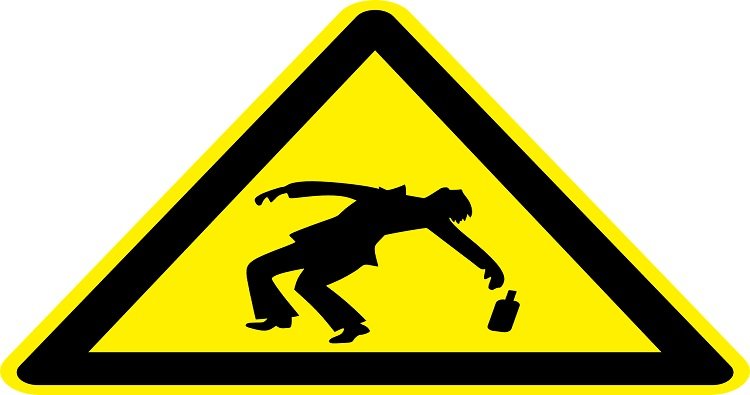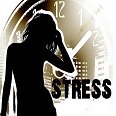- + 91 9958444373
- Malviya Road Dehradun, UK, India.
Blogs detail

Autism Awareness
- 2020-08-25
The most memorable, important part of our lives is becoming a parent one day. Being/becoming a parent is very thrilling and equally challenging. What's more challenging is to find that the child has been diagnosed with any kind of childhood developmental disorder.
Many parents feel ashamed or are too embarrassed to even talk about such matters. Many parts of the society still treat people with ASD differently.
Thus, it's very crucial to be aware of Autism Spectrum Disorders (ASD). To normalize it for better public health care, to ease their experience for the parents, even more for the children, adolescents, and adults with ASD.
Autism awareness: April 2 is World Autism Awareness Day, and people wear the color blue to raise awareness for the developmental disorder.
The puzzle ribbon in 1999 became the universal sign of autism awareness. The puzzle pattern portrays the complexity of the autism spectrum. The different colors and shapes reflect the diversity of the people and their families living with the condition.
We need to understand autistic individuals are unique and amazing in their own way. We need to provide a platform for them to be free, where they feel accepted and can grow peacefully.
We shouldn't feel bad for them or be disheartened for them. They’re marvelous in their own way, we just need to make them feel safe and loved. Being supporting and accepting are the main two bits of help that you can offer to anyone.
Let's know what Autism Spectrum Disorders (ASD) are:-
- Autism is a highly variable neurodevelopmental disorder.
- Autism is among the five pervasive developmental disorders.
- Autism symptoms first appear during infancy or childhood and generally follows a steady course without remission. People with autism may be severely impaired in some respects but average, or even superior, in others called "savants".
ASD includes developmental disorder conditions —
Autism: People with autistic disorder usually have significant language delays, social and communication challenges, and unusual behaviors and interests and also have intellectual disabilities.
Asperger's syndrome: It usually has milder symptoms of autistic disorder. They might have social problems and sometimes unusual behaviors and interests. However, they do not have problems with language or intellectual disability.
Childhood disintegrative disorder (CDD): These children have typical development for at least 2 years, also known as Heller's syndrome and disintegrative psychosis, is a rare condition characterized by late-onset of developmental milestones—or severe/sudden reversals—in language, social, and motor skills.
Pervasive developmental disorder not otherwise specified (PDD-NOS, i.e. all autism spectrum disorders): People who meet some of the criteria for autistic disorder or Asperger syndrome, but not all, maybe diagnosed with atypical autism. These people usually have fewer and milder symptoms as compared with autistic disorders. The symptoms might cause only social and communication challenges, and
Rett syndrome: It's a genetic brain disorder that typically becomes apparent after 6 to 18 months of age in females. Symptoms include difficulty with language, coordination, and repetitive movements/behaviors. It also has slower growth, problems walking, and small head size. Complications can include seizures, scoliosis, and sleeping problems.
Characteristics of ASD
It is distinguished by a characteristic triad of symptoms:
- impairments in social interaction,
- impairments in communication, and
- repetitive behavior.
It is often noticeable by parents during the first three years of their child's life. These signs often develop gradually, though some children with autism experience worsening in their communication and social skills even after reaching developmental milestones normally.
Signs & symptoms to look out for-
Behavioral problems:
-
A lack of eye contact
-
Doing something repetitive, like repeating words or phrases, rocking back and forth, or flipping a switch
-
Avoiding contact with other people
-
when another person points at things, they won't look at those things
-
Not wanting to be held or cuddled
-
Difficulty in understanding/using speech, gestures, facial expressions, or voice tone
-
Speaking in a sing-song, flat, or robotic voice
-
Trouble adapting to changes in routine
Sensory problems – Many children with ASD either underreact or overreact to sensory stimuli.
-
At times they may ignore people conversing with them and may appear deaf. However, at other times they may be annoyed by even the softest, faintest sounds.
-
Sudden noises such as a ringing telephone, bell ringing can be upsetting, and they may behave by covering their ears and making repetitive noises, pace back and forth to drown out the offending sound. Autistic children also tend to be highly sensitive to touch and to texture. They may be disturbed at a pat on the back or the feel of the certain fabric on their skin, someone speaking loudly, someone touching their hair, etc.
Emotional difficulties –
-
They face a great deal of difficulty regulating their emotions or expressing them appropriately. For instance, the child may begin to yell, cry, or laugh hysterically for no reason whatsoever. In stressful situations, the child may exhibit disruptive, even aggressive behavior such as --breaking things, hitting others, self-harm, crying loudly, etc.
-
People with ASD may be unfazed by real dangers like moving vehicles or heights, yet be terrified of harmless objects such as a stuffed animal or a toy.
- Uneven cognitive abilities – ASD may occur at all levels of intelligence. Sometimes, even kids with average to high intelligence often have underdeveloped cognitive skills.
-
verbal skills are often weaker than nonverbal skills.
-
children with Autism spectrum disorder typically do well on tasks involving immediate memory or visual skills, while they face difficulty in tasks involving symbolic or abstract thinking.
Here are some of the Autistic helplines you should know about
(p.s. Share them too)
-
Action for autism-Delhi : Email: actionforautism@gmail.com Contact Numbers: +91 11 4054 0991, +91 11 4054 0992, +91 11 6534 7422 http://www.autism-india.org/
-
Sampoorna Music Therapy Centre – Bengaluru: Sampoorna uses music to deal with autistic kids. The therapy center was started a while back due to the joint efforts of Ganesh Anantharaman, his wife Kavita, and many other volunteers. The music brings calmness and discipline into the autistic kids is worth admiring Website: www.sampoornamusic.org, Email: sampoornamusic@gmail.com
-
Communication DEALL – Several locations across India: It is an early intervention program that addresses the needs of autistic children in the early stages. The team works with the children for three hours a day, five days a week, helping them to attain equal levels of development as others. Website: www.communicationdeall.com Email: communicationdeall@gmail.com. Contact Numbers: Bengaluru – +91 80 25800826 / 27, +91 94803 34809
-
Assisted Living for Autistic Adults (ALFAA) – Bengaluru: ALFAA provides good living conditions to male adults suffering from ASD. It also focuses on serving counseling and guidance to people/children with ASD and their families. Website: alfaa.org. Contact: rubysingh_india@yahoo.co.in. Contact Number: +91 80 25567762, +91 97414 18103
-
Ummeed – Mumbai: Ummed also focuses on other developmental disorders and not just only ASDs. With the help of their strong expertise, early intervention, capacity building, advocacy, and research, they have been successful in bringing a tremendous positive change in the attitude of kids. Website: ummeed.org Email: info@ummeed.org Contact Numbers: +91 22 65528310, 65564054, 23002006
-
Darpan Autism – Ludhiana: Darpan school provides whole development to autistic people. It offers various assessments and diagnoses to speech and occupational therapy and parent counseling. Website: www.darpanautism.org Email: darpanautism@hotmail.com Contact Numbers: +91 9779913463, +91 9417160463
-
Autism Society of Andhra Pradesh (ASAP) – Hyderabad: ASAP, a non-profit organization helps families and children on the Autism spectrum by offering a large number of services such as Psychological Assessments & Diagnosis, Early Intervention, Speech Therapy, Occupational Therapy, Behaviour Modification, Sensory Integration, Music Therapy, Group Therapy, etc. Website: www.asap.org.in Contact: info@asap.org.in Contact number: +91 – 40-64502596, +91 – 98485 13192
-
Assam Autism Foundation – Assam: It's one of the best organizations in Assam working in the field of autism. Their aim is to spread awareness of developmental disabilities and the methods of rehabilitation. AAF is associated with Day Care Centre, Community Awareness activities, Research Works, Swashroy Project dealing with paper products, and Speech and Communication Development Centre. Website: www.aaf.org.in Email: autiassam@gmail.com, Contact Numbers: +91 9706014608 (Project Management and Public Relations Officer), +91 9706042918 (Administration and Finance Officer), +91 9864027292 (Consultant Paediatrician)
References
https://www.helpguide.org/articles/autism-learning-disabilities/autism-spectrum-disorders.htm
https://www.webmd.com/brain/autism/understanding-autism-basics
http://dhss.alaska.gov/dph/wcfh/Pages/autism/spectrum.aspx
Ms. Kajal Singh (Content writer) |
Editor's note: According to me, people still feel ashamed of their children or family members having autism. I am fully aware of the fact that dealing with autism can become a little tough but there's more to it, the people with autism exhibit other levels of creativity also which are often beautiful and amazing. Only if we are aware of the Autistic Disorders only then can we normalize it? Being Aware is the first step to bring the change. |
Contact now
We are a group of health professionals, including Psychologists, Clinical psychologist, Rehabilitation Psychologist, Counsellors, Mindfulness Experts and Social Workers. We are working since 2018 in India to foster mental health.
Contact Us
recent blogs
-

SADNESS AND DEPRESSION ARE DIFFERENT!
2020-06-16 -

ALCOHOL USE DISORDER (AUD)
2020-06-19 -

SEASONAL AFFECTIVE DISORDER (SAD)
2020-06-12 -

UNDERSTANDING MINDFULNESS MEDITATION
2020-06-03 -

BURDEN OF DEPRESSION
2020-06-17







